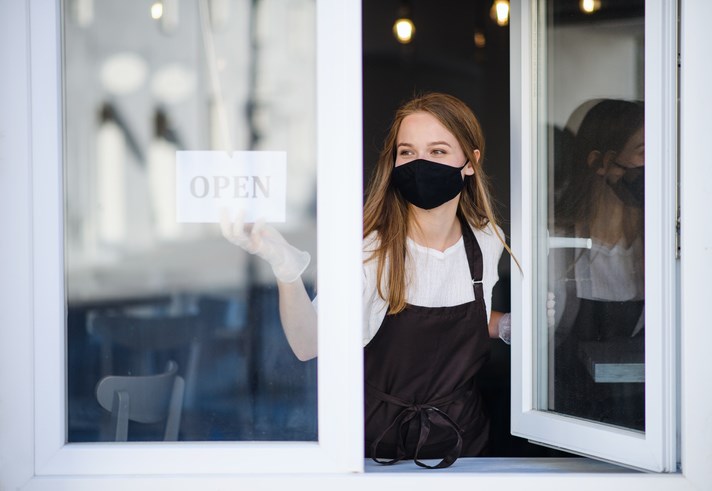Drive down the highway, you’ll see the signs: “Now hiring: All positions.”
Depending on the time of day, either you’ll see bustling business or the restaurants are dark, their patios full of chairs and tables but not a soul in sight. Some establishments are closed on certain days, or just for a few hours every day.
It seems unusual to see a beautiful beach sunset across from empty businesses, during what has traditionally been the Sunshine Coast’s busy season. After all, the tourists are certainly back and vaccination rates on the Coast are high and increasing.
In the pages of the newspaper are ads looking for employees. One, looking to hire a residential Waste Management driver, offered a $2,000 sign-on bonus. It’s an unprecedented situation, the public sector manager said in a press release about WM’s “aggressive recruitment” for positions in Sechelt. The driver shortage is impacting recycling, green bin and garbage collections. At least one Sechelt neighbourhood has been missed two weeks in a row.
So where is everyone?
Recently, I spoke to some tourists visiting the Sunshine Coast for the first time. They surmised that people had been laid off, gone on government assistance and just … decided not to return to work.
As someone who was actually laid off in the initial stages of the pandemic, and who did receive CERB, I can share that there are many people who returned to work when the opportunity presented itself. But not because we wanted to – because we had to. “To make a living” is a phrase that should be taken literally in light of the pandemic, when servers and retail workers became frontline workers risking their health to keep society as we know it functioning. Rent still had to be paid, bills were still due and government cheques do stop eventually.
All it takes is a cursory glance at the Poverty Reduction Strategy to know there is a serious combination of problems on the Coast. These tourists I spoke to had stayed at an Airbnb, short-term rentals being just one of the issues surrounding the search for affordable housing. Then there’s the cost of living on the Coast versus how much a local job pays. Mix in childcare, finding a reliable way to commute and – on top of all that – dealing with not-always-pleasant customers once you do get to work? Tough, if not sometimes impossible.
While I was laid off, there were some days that working to just make it by didn’t seem worth the hassle. I thought about my one and only serving job, back when I was a student. I lasted a month as a hostess at a breakfast diner before I received an envelope with my portion of the tips. Between the measly $20, rude customers and break-of-dawn hours, I quit. It was one of the hardest jobs I worked. So when a deadly disease began spreading around the world, the last thing I wanted to do was risk my health for a thankless job.
By now, after over a year of the pandemic, surely we know that serving, retail work, customer service jobs are skilled work. Surely they should be treated – and paid – as such.
What we are seeing now are the symptoms of a much larger issue than not being served a meal on demand – and it will outlast the pandemic. Hopefully locals and tourists alike will be understanding as they ask for service at our various businesses.


